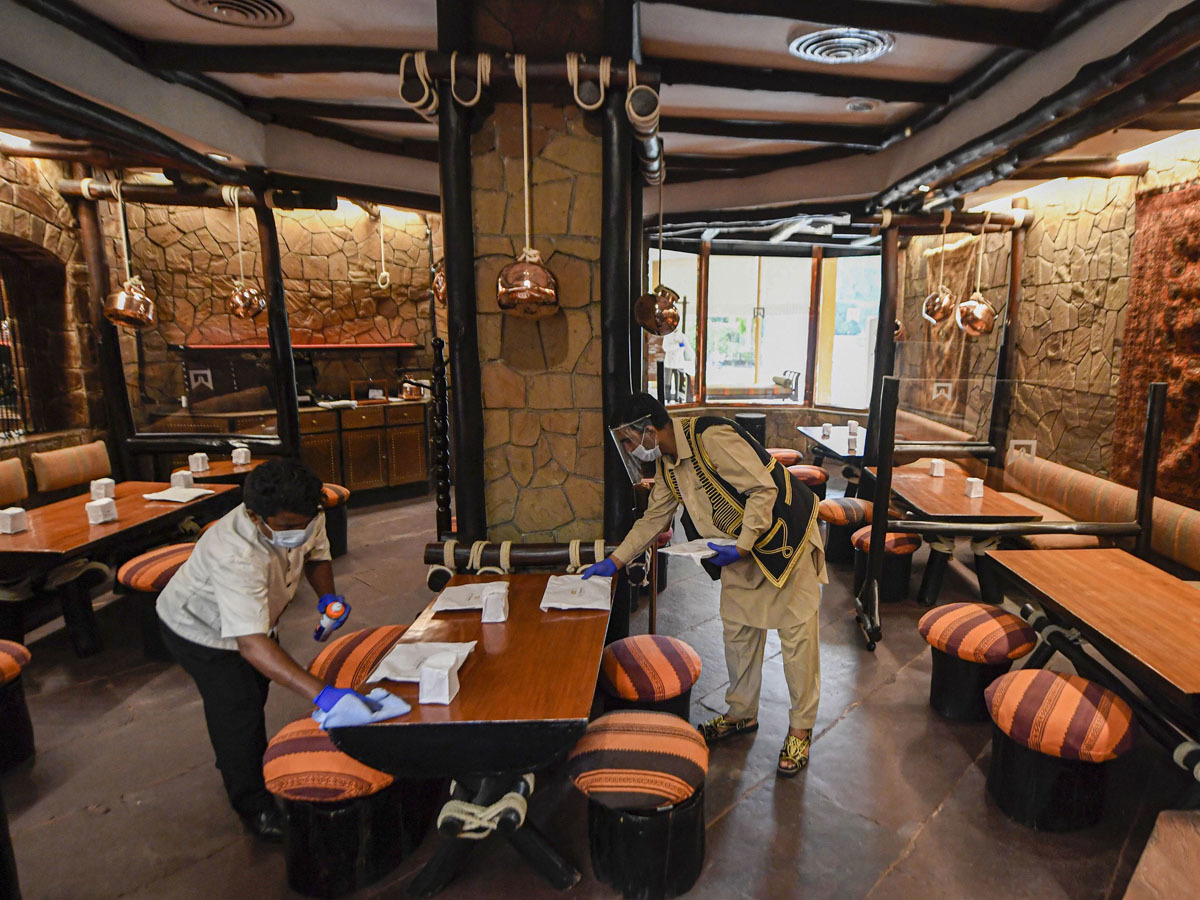This article explores the impact of COVID-19 on the hospitality industry, highlighting the lessons learned and what the industry can expect in the future. From the initial shock of shutdowns and cancellations to the industry’s resiliency and adaptability, this article examines how COVID-19 has affected the hospitality industry and offers insights into how the industry can move forward.
The COVID-19 pandemic has significantly impacted every industry, and the hospitality industry is no exception. The industry, which includes restaurants, hotels, travel, and tourism, has been severely affected by the pandemic. With the pandemic forcing people to stay at home, the hospitality industry has experienced a significant decline in revenue.
Businesses have been forced to shut down or limit their operations, and many employees have lost their jobs. In this article, we will explore the impact of COVID-19 on the hospitality industry and discuss the lessons learned from this crisis. We will also look at what the future holds for the industry.
The initial shock of shutdowns and cancellations:

The hospitality industry was one of the first industries to feel the impact of the pandemic. With travel restrictions in place, hotels and restaurants experienced a significant decline in business. Many events were canceled, and travel plans were put on hold, resulting in significant losses for the industry. The initial shock was felt worldwide, with businesses shutting down or laying off employees.
Adapting to the new normal:
As the pandemic continued, businesses in the hospitality industry started to adapt to the new normal. Restaurants shifted to takeout and delivery options, while hotels implemented new cleaning and safety protocols.
Businesses had to think creatively to find ways to continue serving their customers while keeping them safe. The industry’s adaptability was impressive, with many businesses finding ways to pivot and adjust to the challenges of the pandemic.
The rise of contactless technologies:
The pandemic has accelerated the adoption of contactless technologies in the hospitality industry. Businesses have implemented contactless payment options, digital menus, and mobile ordering systems to reduce physical contact between customers and employees. These technologies have not only helped to reduce the spread of the virus but have also improved efficiency and convenience for customers.
The importance of communication:
During the pandemic, effective communication became more critical than ever. Businesses had to keep their customers informed about changes in operations, safety protocols, and any other updates related to the pandemic. Clear and transparent communication helped to build trust with customers and ease any concerns they may have had about visiting businesses during the pandemic.
The impact on employees:
The hospitality industry employs millions of people worldwide, and the pandemic has had a significant impact on these employees. Many workers have lost their jobs, while others have had their hours reduced. The pandemic has highlighted the need for businesses to take care of their employees and provide them with support during challenging times.
The importance of mental health support:
The pandemic has also had a significant impact on people’s mental health, including employees in the hospitality industry. Businesses have recognized the importance of providing mental health support to their employees, with many implementing employee assistance programs and other mental health resources.
The need for resilience:
The pandemic has been a challenging time for the hospitality industry, but it has also highlighted the industry’s resilience. Businesses that have been able to adapt to the challenges of the pandemic have been able to survive and thrive. The ability to bounce back from difficult times will be essential for the industry’s future success.
The shift to outdoor dining:
As indoor dining was restricted in many areas, businesses in the hospitality industry had to find alternative ways to serve their customers. One solution was outdoor dining, which became increasingly popular during the pandemic. Restaurants and cafes set up outdoor seating areas, and many cities implemented programs to make it easier for businesses to expand their outdoor dining options.
The future of business travel:
Business travel has been significantly impacted by the pandemic, with many companies canceling or postponing trips. As businesses have shifted to remote work, the need for business travel has decreased.
However, as the pandemic subsides, it is likely that business travel will resume, albeit in a different form. Businesses may prioritize virtual meetings and conferences, reducing the need for in-person travel. The hospitality industry will need to adapt to these changes and find new ways to serve business travelers.
The importance of sustainability:
The pandemic has also highlighted the importance of sustainability in the hospitality industry. As travel and tourism have decreased, the impact on the environment has also reduced. Many businesses in the industry have recognized the need to prioritize sustainability, implement eco-friendly practices, and reduce waste. The industry will need to continue to prioritize sustainability in the future to reduce its impact on the environment.
The role of technology in the future of hospitality:
The pandemic has accelerated the adoption of technology in the hospitality industry, and this trend is likely to continue in the future. Businesses will continue to implement contactless technologies, and there will be a greater emphasis on automation and artificial intelligence. These technologies will not only improve efficiency and convenience for customers but also help businesses to reduce costs.
The importance of community:

The hospitality industry is an essential part of many communities, and the pandemic has highlighted the industry’s role in supporting local economies. As businesses have struggled during the pandemic, communities have rallied to support them. The industry’s future success will depend on its ability to continue to build strong relationships with the communities it serves.
Conclusion
The COVID-19 pandemic has had a significant impact on the hospitality industry, but it has also highlighted the industry’s adaptability and resilience. Businesses have had to pivot and adjust to the challenges of the pandemic, and the industry has emerged stronger as a result.
Looking ahead, the industry will need to continue to adapt to changes in consumer behavior, prioritize sustainability, and embrace technology. The hospitality industry plays a vital role in many communities, and its success will be critical to the recovery of local economies in the post-pandemic world.






























